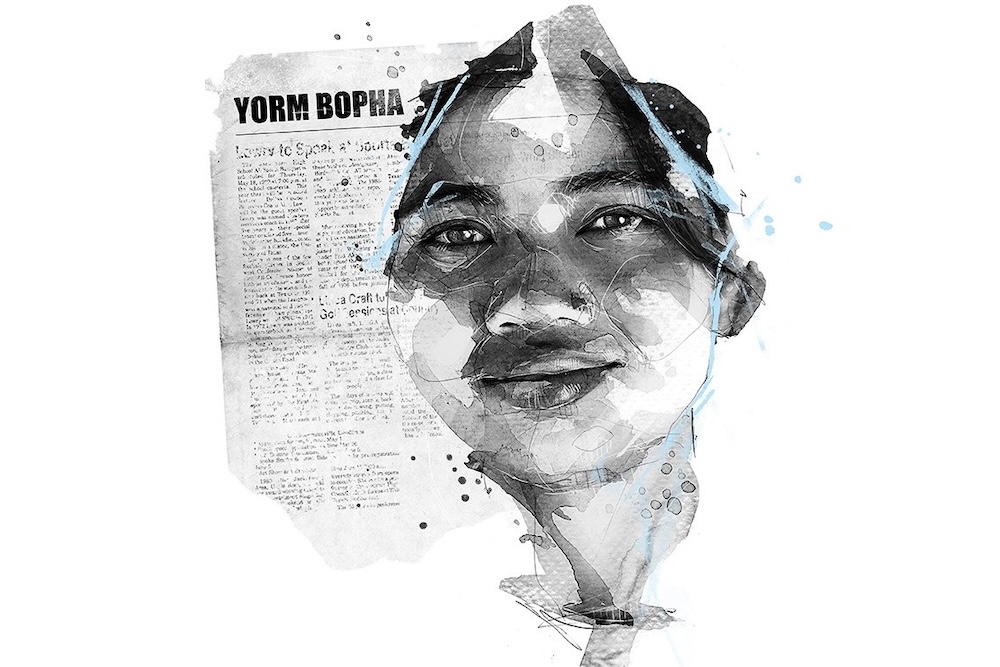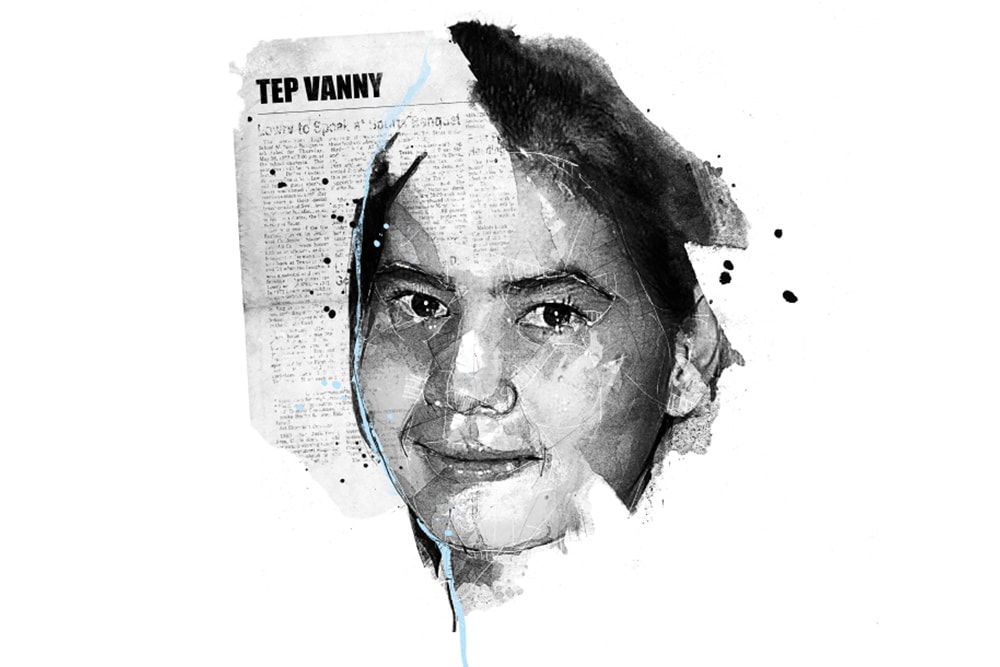Neither prison nor constant threats have stopped Bopha from continuing her fight against the displacement of thousands of residents.
… I want to push Cambodian women to speak the truth. Because if we don’t speak, no one will know about our problems and no one can help us. Being a vocal person I face a lot of risks, such as being murdered, or jailed, and other risks too – but these do not discourage me.
The draining of a formerly picturesque lake in Cambodia and the forcible displacement of thousands of residents living on the water’s edge has led to the creation of a vigorous land rights movement that is led largely by women. Prominent among them is Yorm Bopha, who has described herself as a “simple housewife” turned campaigner, and who remains undaunted in her passion to stop the evictions and for residents to claim their rights to their land despite a spell in prison and constant threats.
Boeung Kak Lake was a large urban wetland in the Cambodian capital, Phnom Penh. Its waterside cafes and restaurants attracted tourists, providing a living for local residents. In 2007 came the announcement that the lake had been sold for U.S. $80m to a Chinese company that would drain the lake, filling it with sand, with plans to build an elite residential area. By 2010 90% of the lake had been filled, and over 3,000 residents evicted, forced to resettle to the city outskirts. The environmental impact includes flooding risks and the disappearance of fish and agricultural land on the lake’s banks that had also been an important source of income for the local community.
With no rights to the land, those who lived by the lake struggled to hold onto their homes and were compelled to accept inadequate compensation payments. Inevitably this led to protests and, in May 2012, 13 women- ranging from 25 to 72 years in age – were each sentenced to 2 ½ years in prison for their involvement after a trial that lasted just three hours. Explaining why the Boeung Kak protests are dominated by women, Yorm Bopha told the Women’s News Network in 2013: “First, men lose their head too quickly and as a result can instigate violence, and we didn’t want violence during our protests. Second, many men in our community work for the police or the army. So if they participated in the protests, they would have most likely lost their jobs.”
Outraged at what became known as the Boeung Kak 13 arrests, Yorm Bopha and her husband, Lours Sakhorn, became central to the campaign to release the women. They were threatened by police, who warned that they were on a blacklist and should expect the worst.
The Boeung Kak 13 were released a month later following an intense campaign inside and outside Cambodia. Then came Yorm Bopha’s turn. She was arrested in September 2012 and in December, she was accused of “intentional violence with aggravating circumstances” against two taxi drivers who had challenged protesters at a demonstration. She was sentenced to three years in prison after a contentious trial. Amnesty International referred to there being ‘no evidence against [Yorm] and inconsistent witness testimonies’, citing her as a prisoner of conscience. Her supporters pointed out that her visibility during the protests and her outspokenness in the media made her a target. Again campaigners swung into action, staging protests for her release, and, as had happened at other demonstrations, they were met with violence. Lours Sakhorn was among six people seriously injured outside the Prime Minister’s residency in March 2013. He lost several teeth and suffered leg injuries. In November 2013, Yorm Bopha was released on bail.
Yorm Bopha’s experience did nothing to dampen her zeal and she threw herself back into campaigning. In January 2014, she was among five women briefly arrested when they demonstrated for the release of another land rights activist in the face of a blanket ban against all protests.
In a video posted on-line by the International Federation for Human Rights in December 2014, shot at the Boeung Kak site, Yorm Bopha tells of the land rights activists’ continuing struggle in the face of threats and surveillance. She calls on governments and international donors to demand that Cambodia respect human rights, and for redress for those who had lost their land.
In June 2014, she went to the United States to receive the James Lawson Award for Outstanding Achievement in the Practice of Nonviolent Action.
On 28 June 2016, the Court of Appeals convicted Yorm Bopha for the second time despite the absence of any credible evidence against the community leader. She was found guilty of allegedly leading the attack against two motorbike taxi drivers in 2012 and was ordered to pay the victims.
Human rights groups raised concern over the “questionable allegations” and called for the full acquittal of Yorm Bopha. Civil society groups issued a joint statement condemning the court decision. “It is clear that Yorm Bopha is being targeted in a flagrant attempt to silence her as a result of her activism defending the rights of her community.”
In a media interview in 2017, Yorm Bopha urged authorities to prioritize the welfare of residents. “Please consider citizens and their livelihoods before any development, and avoid doing things without considering the consequences and pain that people will endure.”
She also enjoined fellow land rights advocates to continue the campaign. “Please continue your action, do not stop, but make your case from a place of real emotion.”
Illustration by Florian Nicolle

